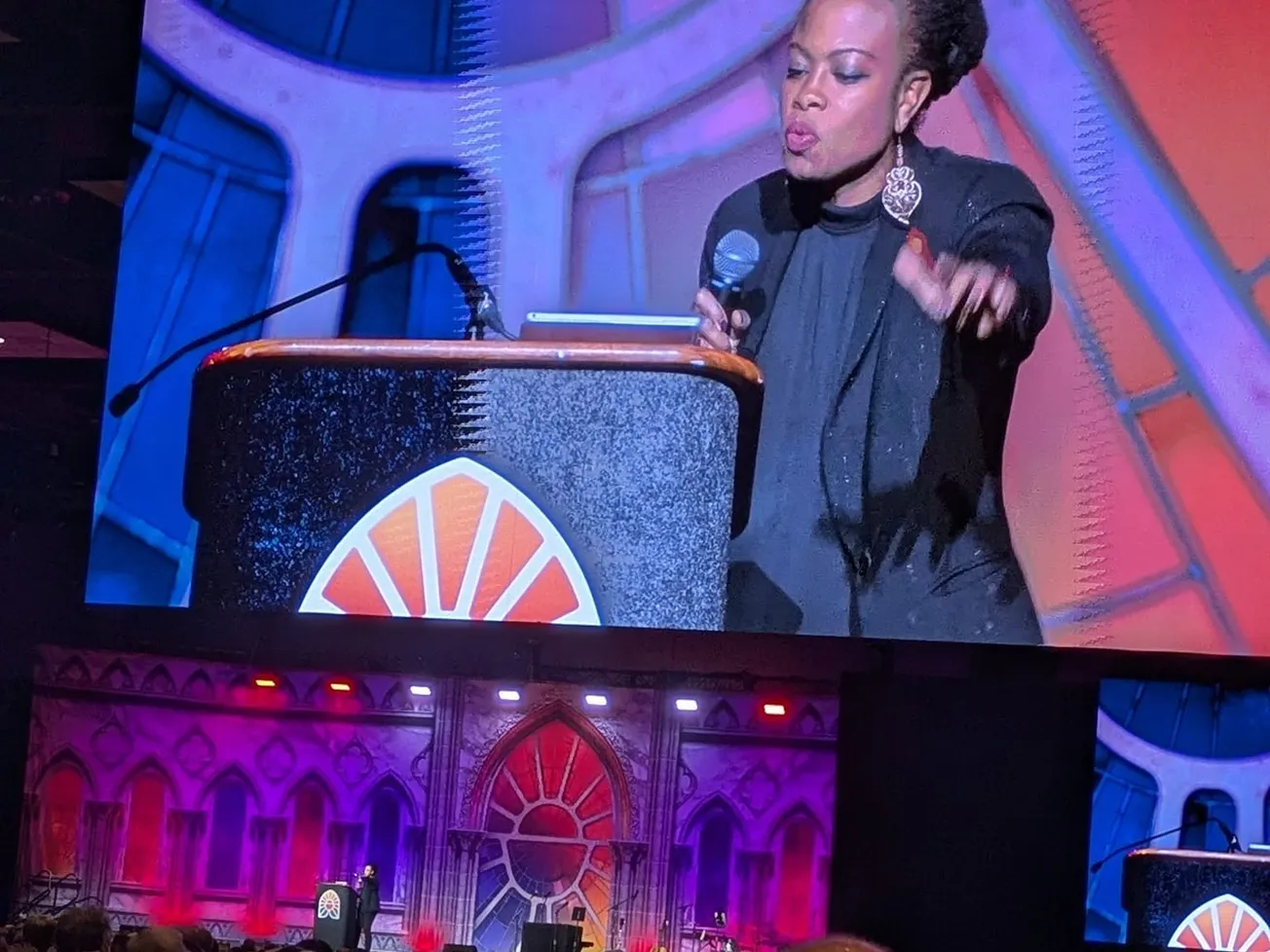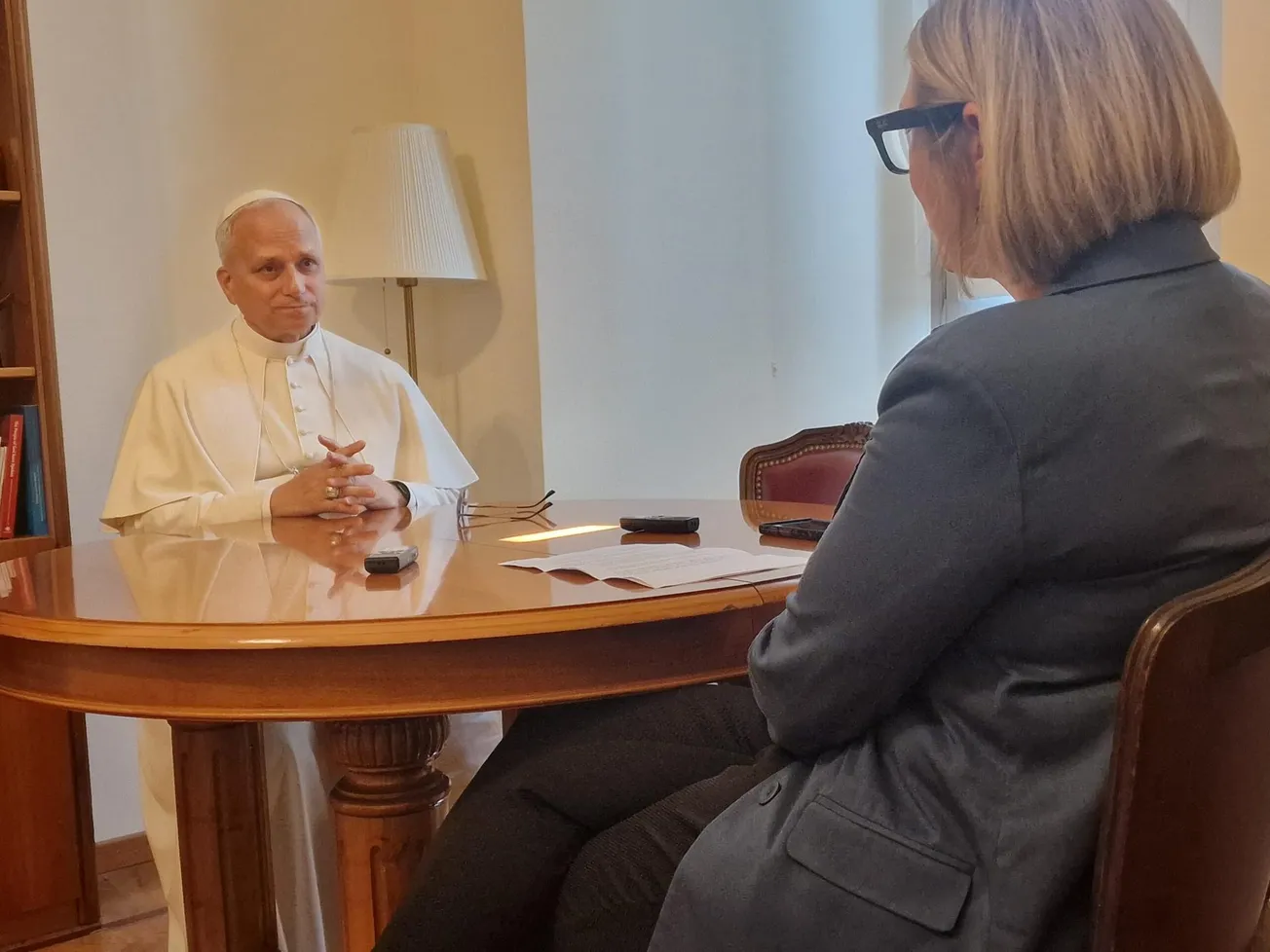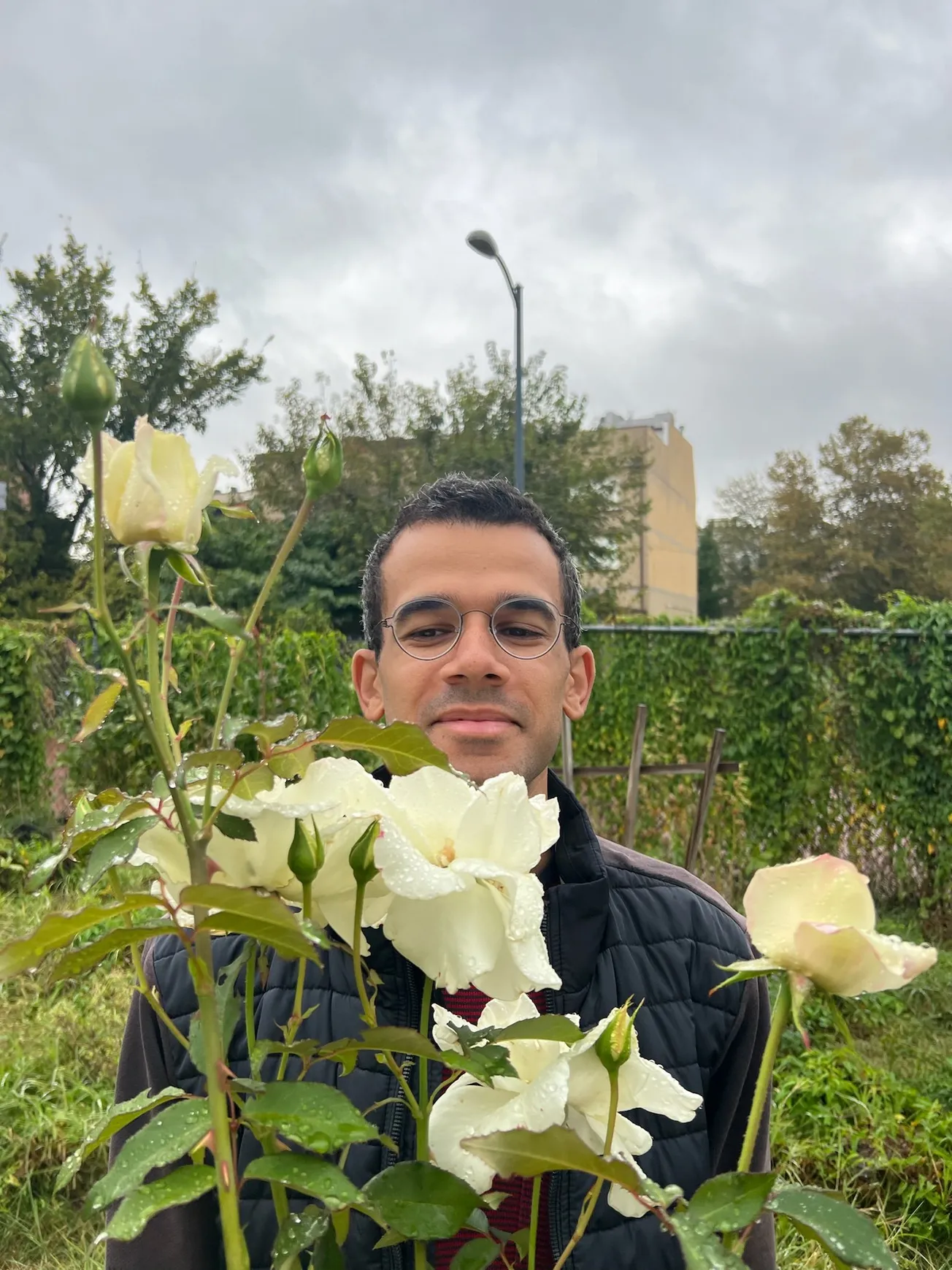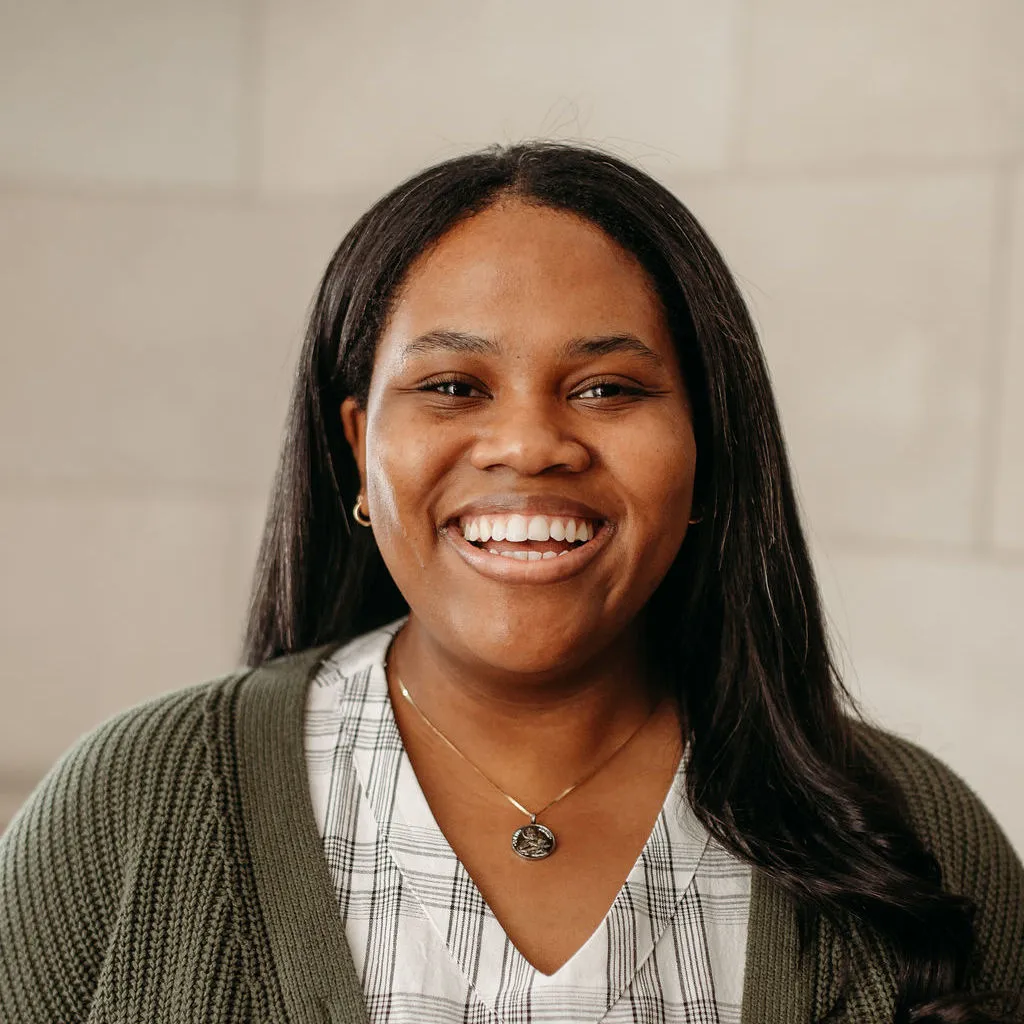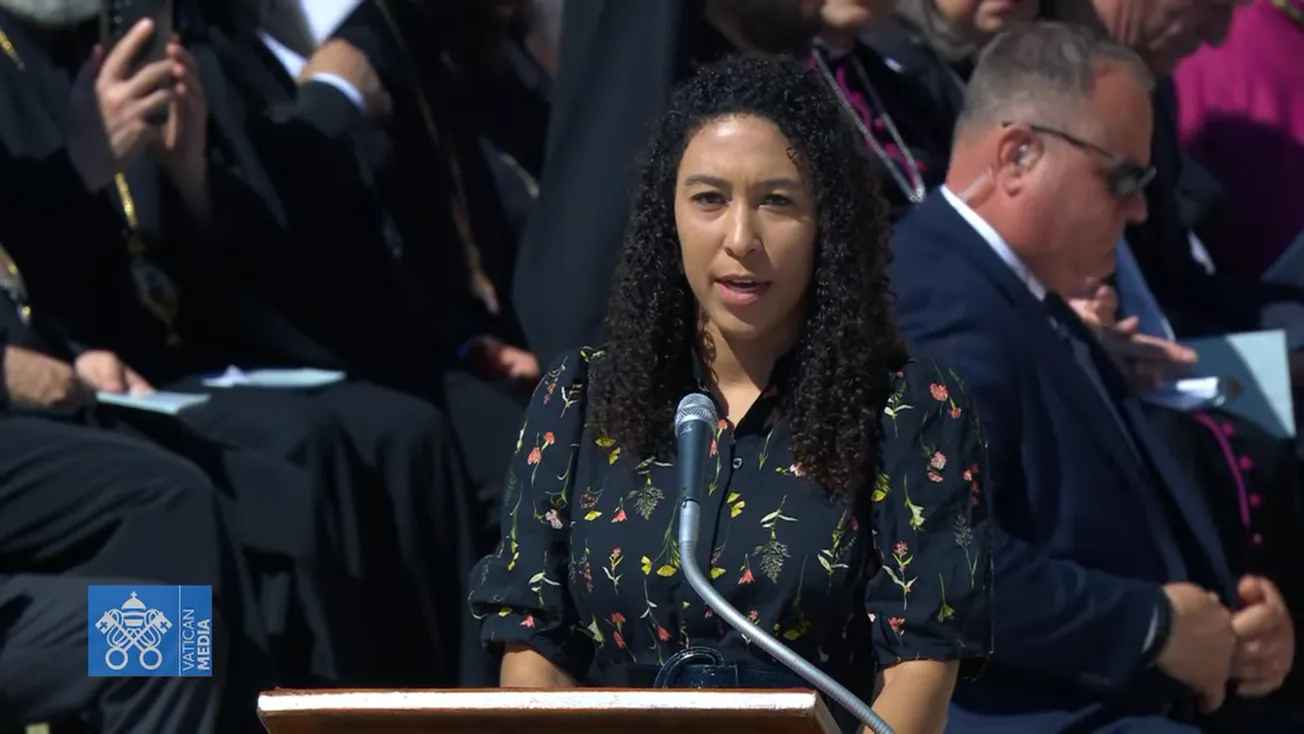Danielle Brown, an attorney who serves as director of the U.S. Conference of Catholic Bishops’ Ad Hoc Committee Against Racism, was one of several Black Catholic speakers at the 10th National Eucharistic Congress in Indianapolis in July. She spoke from her perspective as a ministry leader, having served with several in Lansing, Michigan, before relocating to Washington.
She is currently on the board of Renewal Ministries and Benedictine College and sat down to speak with Briana Jansky during the Congress. This interview has been edited for clarity.
Briana Jansky: How has participating in the Eucharistic Revival affected your inner life?
Danielle Brown: It has been healing beyond anything I could have imagined. I came into it with an already prayerful stance. It is meeting me at that level!
BJ: You spoke at the morning “Renewal” impact session on Thursday. How did the Lord call you to ministry, especially as it concerns Renewal Ministries? Was that a coincidence?
DB: Yes, it was! When I was a teen, I had a strong sense of the sacred from early on. I loved being able to help in a liturgical setting. During college was when I got into my first ministry. I went on a retreat my junior year and they played nothing but country music. It felt really alienating. Particularly when Southern rap was becoming really big, and parties were becoming really integrated. It was really tone-deaf, so I jumped on the team for the next year.
Participating in the Congress was a huge deal for me because I do a lot of public speaking. Larger conferences usually only have a limited number of people of color. It was an enormous opportunity to exhale into the person that I am. It was a huge gift.
BJ: A big part of your strength in your various work for the Church and the state of Michigan has been attending daily Mass. Can you tell me about how Communion strengthens you for your days?
DB: I started going to Mass daily when I was working for the state. It provided a massive opportunity for recollection. Being in the world honestly as a Christian is a disintegrating experience, and Mass is a profound opportunity to reintegrate humanity into the sacred. At the hardest points, it’s been a really tough decade and a half. Those hardest moments are when you’re taking things hour by hour.
BJ: How has the Eucharist healed you, especially in your role as the associate director of the Ad Hoc Committee Against Racism with the USCCB?
DB: Believing in the sacrifice of the Mass that we celebrate and acknowledging that it really does and did provide recompense for all of the sin of all of humanity. It carries the weight of racism, slavery—all of the prejudice that people have had to endure in the U.S. and around the world. Knowing that I get to celebrate that sacrifice is amazing.
BJ: I think there’s a massive need in the Church for spiritual healing when it comes to racism. I converted in 2019 and when I saw how African Americans were treated in the Church, it broke my heart. I had to remind myself every day that this is the Lord’s Church. Can you tell me about what you think is the key to moving our church forward in terms of healing from its racial wounds?
DB: Some people won’t like it but the answer is for Black Catholics to become as holy as possible and learn how to abide in the Father. My talk Thursday really centered on the realization that Jesus’ first mission was to abide in the Father, to receive his love. From there, he was able to do all that he was called to do. Those are directions for all Christians. Right before Jesus ascended, he told his disciples to go to Jerusalem and wait for power from on high. Black Catholics should abide in the Father and receive his love as sons and daughters of Christ. By doing that, I’ve noticed that other people and their processes affect me minimally. Out of wholeness, we can accompany people if that’s our role or completely disengage if that’s what we are called to do. We are always living under the gaze of the Father.
BJ: What advice do you have for ministries just starting out, especially those led by people of color?
DB: Abide. Pose a question: What does it look like for your ministry to stop all activities for 40 days and get on your face and wait and fast, wait for power from on high?
BJ: Anything you would like to add on about your work or experiences you’ve had during the Congress that have inspired you?
DB: True freedom is only found at the foot of the cross. True healing can only be found in the Eucharist.
Briana Jansky is a freelance writer, author, blogger, and host of the Geeks For Jesus podcast.


